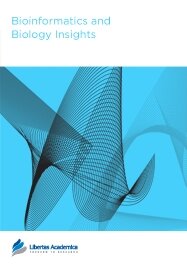

Publication Date: 31 Mar 2010
Type: Original Research
Journal: Bioinformatics and Biology Insights
Citation: Bioinformatics and Biology Insights 2010:4 19-31
doi: 10.4137/BBI.S4168

Conjugated linoleic acids (CLA) are of important nutritional and health benefit to human. Food products of animal origin are their major dietary source and their concentration increases with high concentrate diets fed to animals. To examine the effects of diet supplementation on the expression of genes related to lipid metabolism, 28 Angus steers were fed either pasture only, pasture with soybean hulls and corn oil, pasture with corn grain, or high concentrate diet. At slaughter, samples of subcutaneous adipose tissue were collected, from which RNA was extracted. Relative abundance of gene expression was measured using Affymetrix GeneChip Bovine Genome array. An ANOVA model nested within gene was used to analyze the background adjusted, normalized average difference of probe-level intensities. To control experiment wise error, a false discovery rate of 0.01 was imposed on all contrasts. Expression of several genes involved in the synthesis of enzymes related to fatty acid metabolism and lipogenesis such as stearoyl-CoA desaturase (SCD), fatty acid synthetase (FASN), lipoprotein lipase (LPL), fatty-acyl elongase (LCE) along with several trancription factors and co-activators involved in lipogenesis were found to be differentially expressed. Confirmatory RT-qPCR was done to validate the microarray results, which showed satisfactory correspondence between the two platforms. Results show that changes in diet by increasing dietary energy intake by supplementing high concentrate diet have effects on the transcription of genes encoding enzymes involved in fat metabolism which in turn has effects on fatty acid content in the carcass tissue as well as carcass quality. Corn supplementation either as oil or grain appeared to significantly alter the expression of genes directly associated with fatty acid synthesis.
PDF (663.14 KB PDF FORMAT)
RIS citation (ENDNOTE, REFERENCE MANAGER, PROCITE, REFWORKS)
BibTex citation (BIBDESK, LATEX)
XML
PMC HTML
The publication of our paper in Bioinformatics and Biology Insights was highly professional and very pleasant on all levels: the guidelines for authors are concise, the online submission system is user-friendly, the comments from the reviewers were insightful and improved our paper, and the preparation of the manuscript for publication was efficient. I particularly liked the fast feedback from the staff on the state of the submission and review process.

All authors are surveyed after their articles are published. Authors are asked to rate their experience in a variety of areas, and their responses help us to monitor our performance. Presented here are their responses in some key areas. No 'poor' or 'very poor' responses were received; these are represented in the 'other' category.See Our Results
Copyright © 2013 Libertas Academica Ltd (except open access articles and accompanying metadata and supplementary files.)
Facebook Google+ Twitter
Pinterest Tumblr YouTube